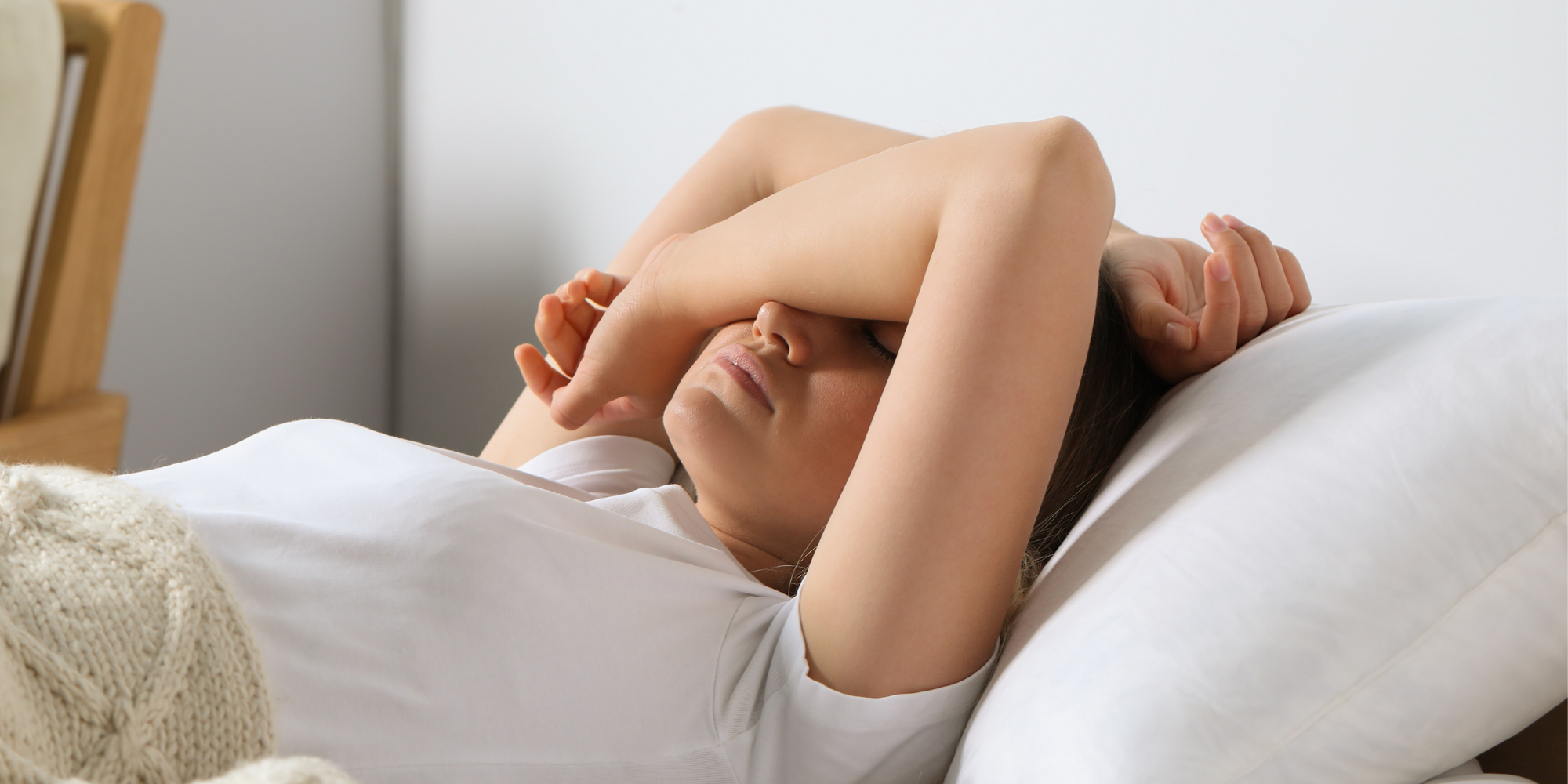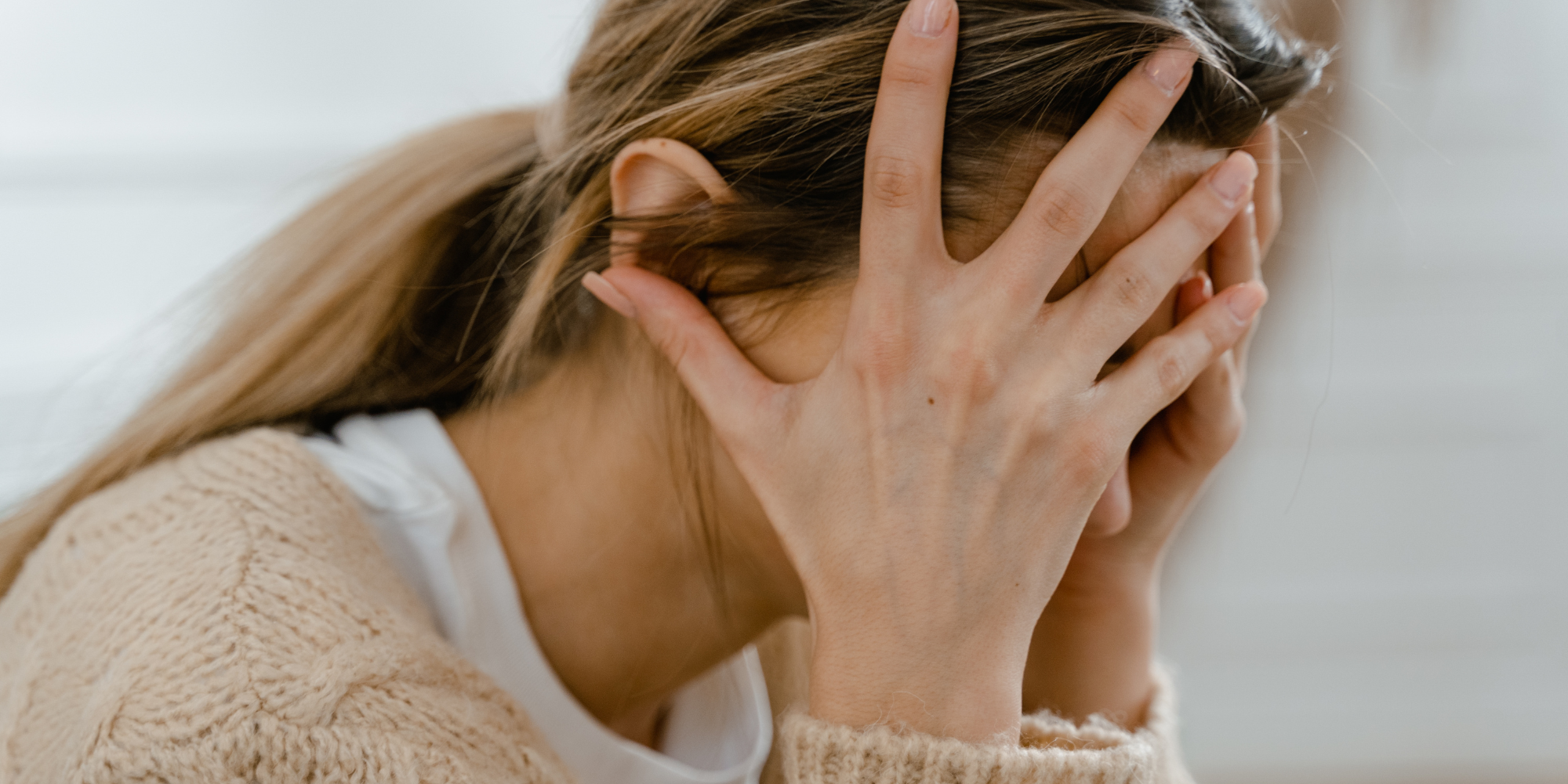Did you know that 64% of women have trouble sleeping during menopause?
The numerous hormonal changes a woman's body undergoes during this stage can significantly affect sleep quality. As estrogen and progesterone levels decrease, many women experience insomnia and other sleep problems.
Beyond fatigue, lack of sleep can have serious health consequences, including an increased risk of cardiovascular diseases, reduced cognitive functions, and mental health issues such as anxiety and depression, according to studies by Maturitas and the North American Menopause Society.
If you often wonder, "Why can't I sleep well during menopause?" this article explains the causes of insomnia, its consequences, and what you can do to achieve restorative sleep.
A. Insomnia and menopause: what disrupts sleep during menopause?
What causes insomnia during menopause? Why does menopause make you so tired?
Estrogen plays a fundamental role in sleep regulation, so its decrease can lead to sleep deprivation or insomnia. According to the North American Menopause Society, estrogen can cause hot flashes and night sweats, which typically disrupt sleep.
Additionally, progesterone levels also drop during menopause. This hormone acts as a natural sedative, promoting relaxation and restorative sleep.
Why am I so tired during menopause?
"Some women may struggle to fall asleep, while others might wake up frequently or have fragmented sleep," explain experts at the Somno Clinic. "It's important to note that progesterone-related insomnia can manifest in various ways."
Apart from hot flashes and hormonal changes, psychological issues such as anxiety or depression can increase during menopause, further disrupting sleep cycles.
But what are the consequences of sleep deprivation during menopause?
B. Consequences of poor sleep during menopause
Not getting enough sleep during menopause can have serious implications for physical and mental health.
-
Cardiovascular Diseases: Lack of sleep is closely linked to an increased risk of cardiovascular diseases. Menopausal women with insomnia are more likely to develop hypertension, atherosclerosis, and other heart problems. Studies published in the Journal of Clinical Endocrinology & Metabolism indicate that women who sleep less than six hours have a significantly higher risk of cardiovascular disease.
-
Weight Gain and Diabetes: Sleep deprivation can also disrupt hormones that regulate hunger (leptin and ghrelin), leading to weight gain and an increased risk of developing type 2 diabetes.
-
Immune System Issues: Sleep is crucial for the production of cytokines, proteins that help the immune system fight infections and diseases.
Beyond these potential physical health problems, menopause-related sleep issues can also affect mental health:
-
Anxiety and Depression: Lack of sleep during menopause is associated with a higher risk of anxiety and depression. A study in Psychology Today found that decreased levels of estrogen and progesterone not only affect sleep but also mood, significantly influencing symptoms of depression and anxiety.
-
Cognitive Function: Chronic insomnia can lead to memory problems, difficulty concentrating, and cognitive decline, according to a study in Sleep Medicine Reviews.
-
Quality of Life Deterioration: Lack of sleep affects overall quality of life, reducing energy, increasing irritability, and diminishing the ability to enjoy daily activities.
C. How to improve sleep during menopause
How can you combat insomnia and sleep disorders during menopause?
Although it can be challenging, effective strategies exist to improve sleep quality during menopause.
Establishing good sleep habits can make a significant difference. If this isn't enough, the National Institute of Aging recommends cognitive-behavioral therapy, which has proven effective in addressing sleep disorders in women with menopausal symptoms.
Natural solutions for insomnia and fatigue during menopause
There are natural vitamins and supplements, such as melatonin, that can help regulate sleep. It's advisable to take these under medical supervision. Here are the main vitamins and essential ingredients for sleep regulation, fatigue reduction, and overall well-being during menopause:
-
Marine Magnesium: Vital for energy production and muscle and nerve function, it helps reduce fatigue and improve sleep quality.
-
Taurine: Regulates neurotransmitters and reduces anxiety, promoting better sleep.
-
Ashwagandha: Known for its adaptogenic properties, it reduces stress and anxiety, improves sleep quality, and alleviates night sweats.
-
Saffron: Effective in improving mood and reducing depression and anxiety symptoms, contributing to overall well-being.
-
Vitamin B6: Crucial for neurotransmitter production affecting mood and energy levels.
-
Vitamin B12: Essential for the nervous system; deficiency can cause fatigue.
-
Vitamin D: While primarily known for bone health, it also influences energy levels and mood.
-
Vitamin C: Important for the immune system and reducing fatigue.
Days of Confidence Serenity Complex has been specially developed to relieve stress and anxiety, regulating cortisol levels with a patented extract of ashwagandha KSM-66, patented saffron, taurine and marine magnesium. In just two weeks, you'll feel calmer and sleep better.
Days of Confidence's Vitality Complex has been designed to promote hair growth and reduce stress-induced hair loss with Siberian Rhodiola, but also contains enough Vitamin B12 (100% of the recommended daily amount) to give you an energy boost.
If you're looking for a natural dietary supplement containing a sufficient dose of Vitamin D, we recommend Days of Confidence's Immunity Complex, formulated with 16.67µg of Vitamin D, 333% of the recommended daily amount, which is particularly effective in increasing and maintaining optimal levels of Vitamin D in the blood.
By incorporating these elements into your routine, you can significantly improve your sleep and reduce stress, anxiety and night sweats during menopause, giving you a better quality of life.
D. Tips for better sleep during menopause
-
Adopt good sleep habits: Maintain a consistent sleep routine by going to bed and waking up at the same time every day.
-
Create an adequate environment: Avoid screens before bed and create a dark, cool, and quiet environment.
-
Engage in regular physical activity: While intense exercise late in the day is not recommended, regular physical activity improves sleep.
-
Manage stress: Deep breathing, meditation, or yoga can be allies in combating insomnia.
References :
-
El 64% de las mujeres con menopausia sufren insomnio, Domma
-
Worse sleep architecture but not self-reported insomnia and sleepiness is associated with higher cortisol levels in menopausal women, Maturitas
-
The Stages of Menopause and How They Affect Your Sleep - Psychology Today.
-
Sleep Disturbance and the Menopause - Australasian Menopause Society.
-
Sleep Problems, Sexual Side Effects of Menopause NAMS.
-
Efficacy of menopausal hormone therapy on sleep quality: systematic review and meta-analysis, Springer link.
-
La menopausia y los problemas para dormir: ¿Qué puedo hacer?, National Institute of Aging.
-
Associations Between Menopause and Sleep Quality - PubMed.
-
Hormonal Fluctuations and Sleep in Menopause - Maturitas
-
Evaluation and management of sleep disturbance during the menopause transition
-
Sleep disturbance in menopause
-
Sleep During Menopausal Transition: A 6-Year Follow-Up Oxford Academic
-
Effects of menopause on sleep quality and sleep disorders: Canadian Longitudinal Study on Aging










